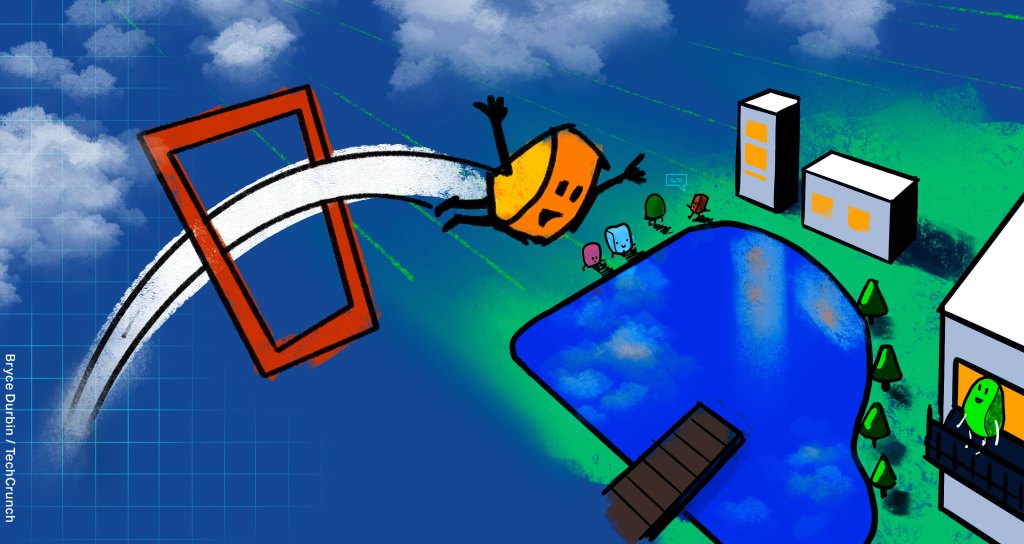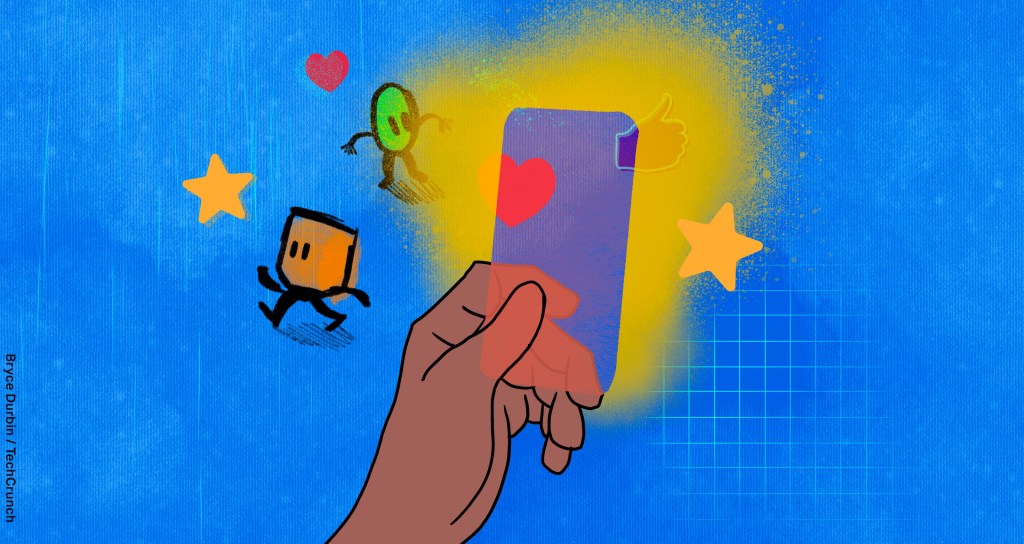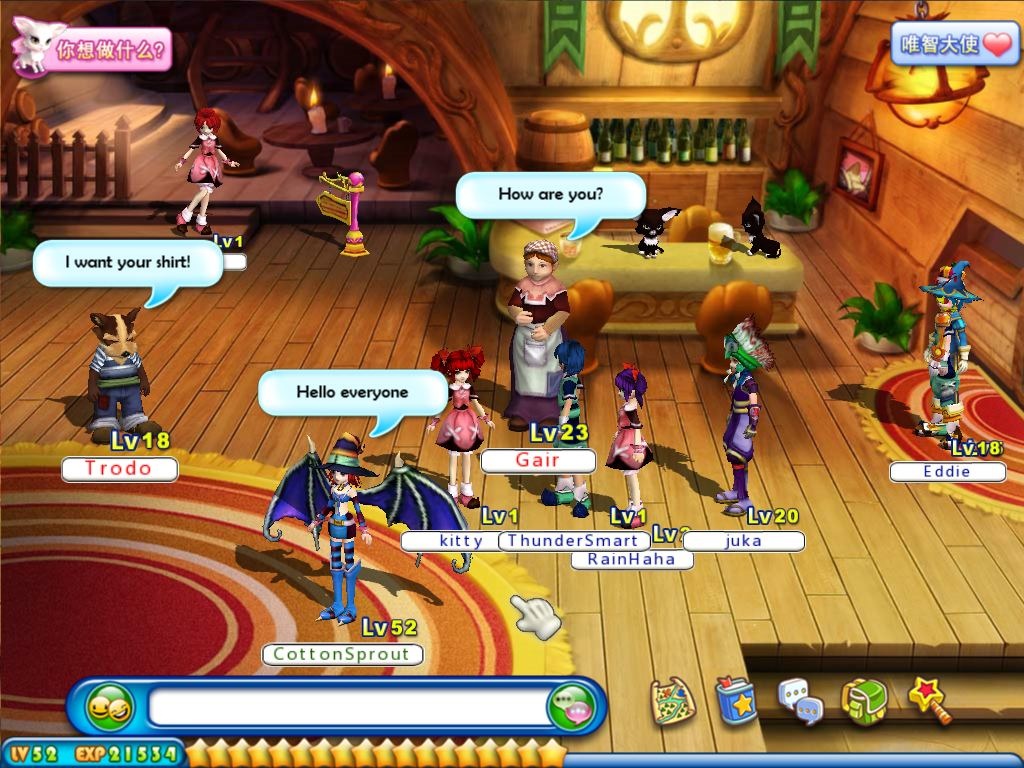virtual worlds
VLGE opens SDK for its no-code virtual world builder aimed at fashion, beauty and art industries
We’ve seen the rise of no-code and low-code platforms being applied to any number of applications and use cases. What would happen if this thinking were applied to metaverse-style virtual…
Mark Zuckerberg demos a tool for building virtual worlds using voice commands
Meta, formerly known as Facebook, today showed off a prototype of an AI system that enables people to generate or import things into a virtual world just by using voice…
Makers of ‘kid’s first virtual world’ Animal Jam targets Gen Z teens with Fer.al debut
Before kids graduate to the expansive virtual worlds in games like Roblox, Minecraft and Fortnite, they often get their start in online social gaming with a game like Animal Jam.…
With kids and adults staying at home, are virtual worlds ready for primetime?
We’ve been diligently following the development of virtual worlds, also known as the “metaverse,” on TechCrunch. Hanging out within the virtual worlds of games has become more popular in recent…
Featured Article
The companies that will shape the upcoming multiverse era of social media
Throughout this series on the rise of multiverse virtual worlds, I have outlined the collision of gaming and social media into a new multiverse era of social media within virtual worlds due to technological and cultural changes. The result will be a healthier ecosystem of social media than what currently exists and the economic development…
Featured Article
Making money from games: The future of virtual economies
Fictional portrayals of virtual worlds such as “Ready Player One” and “The Matrix” typically portray the physical and virtual worlds as distinct realms siloed from each other. Characters escape a dystopian, impoverished physical realm and enter a separate, utopian virtual realm in which they are wealthy and important. Our non-fictional future won’t have that dichotomy.…
Featured Article
Multiverse virtual worlds will be healthier for society than our current social networks
The basis of the classic James Bond film “Tomorrow Never Dies” is an evil media mogul who instigates war between the U.K. and China because it will be great for TV ratings. There’s been a wake-up call recently that our most popular social networks have been indirectly designed to divide populations into enemy camps and…
Featured Article
If socializing within games is so popular, why hasn’t the multiverse arrived yet?
Thus far in this series we’ve outlined “multiverse” virtual worlds — a concept different from the metaverse — as the next stage of social media and what this future will look like. It begs the question though: if video games have been massively popular for many years, why hasn’t this shift to online virtual worlds…
Featured Article
What virtual worlds in the coming multiverse era will look like
Gaming and social media are on a collision course, the result of which will be mainstream popularity of virtual worlds primarily driven by user-generated content (UGC) and anchored in small groups and one-to-one interactions. Games targeting core gamers will remain a thriving market, and social apps centered on broadcasting content will remain popular for photo…
Featured Article
Why social networks want even more gaming
Even if you don’t play games, you have spent years of your life in one or more virtual worlds. Social media platforms like Facebook, Twitter, Instagram and WeChat are lightweight versions of virtual worlds. They don’t offer terrain for avatars to explore, but they are neighborhoods within cyberspace where we store assets, develop relationships and,…
Featured Article
Games already are social networks
Video games are only getting more popular. Roughly 2.5 billion people around the world played games last year, double the number of players in 2013. Gaming is a $149 billion industry, growing 7% year over year, with the U.S. as its largest market. In America, the average gamer is 33 years old and 46% of…
Featured Article
A multiverse, not the metaverse
Following web forums, web platforms and mobile apps, we are entering a new stage of social media — the multiverse era — where the virtual worlds of games expand to become mainstream hubs for social interaction and entertainment. In a seven-part Extra Crunch series, we will explore why that is the case and which challenges…
YC’s Parallel Universe Developing Spatial Databases For Matrix-Style Games
Parallel Universe is an Israeli technology company that promises video game companies the capability to make Matrix-style games through parallel processing, allowing millions of objects to be tracked in real-time.…
In English-Crazy China, 8D World Teaches Kids To Speak In Virtual Worlds; Lands A Deal With CCTV
In China, learning spoken English is giving rise to a huge and growing market. For instance, in addition to English classes in public schools, parents send their children to about…













